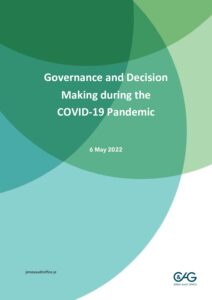
Friday 6 May 2022 - Report
Friday 6 May 2022 - Report
Topics: COVID-19
Departments: All
Sector: All

Report: pdf (472.04 KB)
Download in full ↓The rapidly evolving nature of the COVID-19 pandemic has called for an extraordinary response from Government as it has sought to save lives and protect health and livelihoods in Jersey. The principles of good governance, transparency, value for money, effective internal control and accountability for the use of public funds however remain during a time of emergency. Whilst public financial management systems need to be responsive and flexible, it is essential that they continue to ensure value for money and minimise the risk of fraud and corruption.
The Government of Jersey established new groups at both political and officer level to support decision making without detracting from the constitutional roles of Ministers and Accountable Officers. Those groups had to operate at pace but at the same time demonstrate effective decision making.
The review has evaluated the effectiveness of overall governance and decision making processes during the COVID-19 pandemic, including:
The review extends to activities across the States of Jersey including Ministerial departments and non-Ministerial departments. The review does not extend to States’ owned entities or arm’s-length organisations.
The review is based on an assessment of decisions made to mid-2021.
The Government of Jersey moved quickly to refine and establish decision making groups at political and officer level to respond to the challenges of the COVID-19 pandemic. This was against a background where the need for updating emergencies legislation had been recognised. However, there were some ambiguities about the respective roles of the different groups.
The mechanisms used for identifying, recording and managing potential conflicts of interest at political and officer level need development. In addition, there is an opportunity to standardise the structure and content of reports submitted to political decision making groups to ensure they cover all matters needed for high quality, transparent decision making.
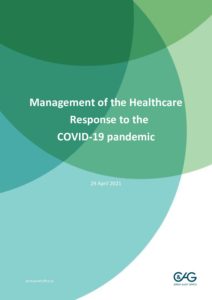
Thursday 29 April 2021 - Report
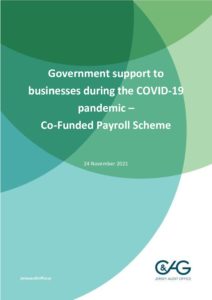
Wednesday 24 November 2021 - Report
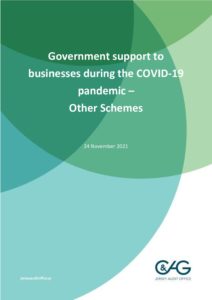
Wednesday 24 November 2021 - Report
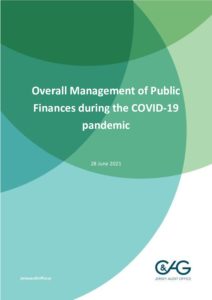
Monday 28 June 2021 - Report
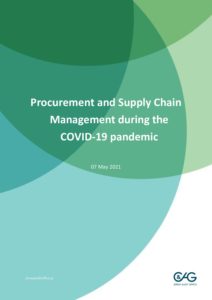
Friday 7 May 2021 - Report
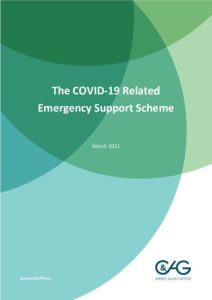
Monday 28 June 2021 - Report

Associate Member of EURORAI - a cooperation project between public sector supervisory bodies in Europe